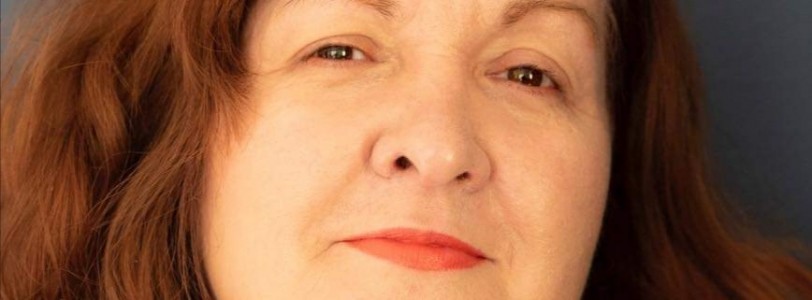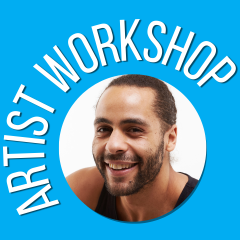Could you first introduce yourself to the reader?
I am a Partnership Manager in the North East for Creative & Cultural Skills and also a freelance trainer, educator, assessor and I also support creative businesses and individuals who wish to set up their own business.
What does a typical day look like for you?
If it is one of my days working as Partnership Manager day it may start with a metro journey to a meeting with an arts/cultural/ heritage organisation who have expressed an interest in diversifying their workforce.
For example, yesterday I was in Newcastle talking to the Director of a vibrant visual arts organisation about the changes to apprenticeships and the apprenticeships that have been developed or are in development, such as a Cultural Learning and Participation Officer, or Curating. We talked about what apprenticeships are and dispelling some of the myths of apprenticeships, such as it's only training and not a job! We then moved onto looking at the language used when recruiting a new entrant to the sector and where you could advertise roles beyond the current networks, such as housing associations and youth clubs.
As an ACE Sector Support Organisation, CCSkills are able to provide one-to-one support to organisations areas such as their recruitment processes, apprenticeships, volunteering, offer best practice training and link with the cultural sector across the UK.
After the meeting I then headed back to the office at home where I caught up on emails, arranged meetings for the following few weeks with a variety of organisations.
What about your job do you enjoy?
I love working for a national charity that supports the UK Cultural Sector by shaping skills, education and employment best practices, and makes people aware of the diverse jobs available across the sector. I enjoy that I meet with a diverse range of organisations promoting and trying to persuade them to look at how they recruit and to consider taking on apprentices. I also think it’s important to advocate for any training that is developed to meet the current skills gaps and future skills needs of the sector based on robust workforce data.
And what do you find challenging?
I would say that for a whole variety of reasons our sector has been slow to embrace diversity and inclusion, and continues to recruit from a narrow pool of people – who tend to be graduates – yet there are so many people out there with talent who would love to get into the sector. In the north east we have the lowest number of cultural businesses of anywhere in the UK, which means there is less opportunity and roles available for new entrants or apprentices, and it means and less jobs, a more stagnant workforce, and less opportunity.
What are some of the changes you have seen in the creative sector during your time working in it?
It is harder than ever to get into work in the sector. Even though there are now apprenticeships available there aren’t enough available in our sector and often they default back to employing graduates. On a positive note, there are now at least apprenticeships available, as 10/11 years ago there wasn’t any at all in our sector, and now there are some organisations who recognise talent doesn’t only exist in if you have a BA!
And what do you think needs change or improvement?
There is still a long way to go for our sector to be fully inclusive. The sector is slowly listening and beginning to make changes but it’s at a relatively slow pace. I believe that more organisations need to understand the benefits of having a workforce made up of members of the community in which they operate instead of the small pool the often recruit from who are in their own image. By being diverse (and representative) can help their business in areas such as audience development and growth, new programming, and becoming a valued part of a community which can foster loyalty.
You’ve also worked with freelancers and creatives to help them develop businesses. What are some of the key mistakes you see people make when starting their own business?
Many freelancers are driven by the passion for working in an area and craft they love. However that is not enough to make a living or be a successful freelancer. If they wish to develop a viable business, or work as a successful freelancer, they need to develop a viable business which allows them to pay their rent and earn a living. They often don’t think about the need to develop business plans, establish their ‘bread and butter’ can be, what their USP (unique selling point) is, work out their daily rate, calculate what their monthly overheads are, learn how to network and pitch and so forth! It may be that they develop a portfolio career instead, as the reality is it can be hard to make a living when freelance in the sector.
If anyone wants to know more about what working as a freelancer then they can look here: https://ccskills.org.uk/careers/develop-your-career/article/setting-up-as-a-freelancer
What has been the highlight of your career to date
To be honest I have had a few as I have been working in the sector for a long time, but for me it's not the huge things that stand out. When I was first teaching film studies way back in the 90s I received very positive feedback for the man who was at the time the North East representative of the BFI and this has always stayed with me. I love the fact I went full circle from developing the first apprenticeships for the creative and cultural sector to then supporting and assessing apprentices on these apprenticeships 10 years later, so I saw first hand the impact my previous work had. This year it has to be working on Discover! Creative Careers where arts and cultural organisations opened their doors to young people showcasing the diverse range of careers in our sector.
And what has been the biggest challenge you have overcome?
Being an undiagnosed dyslexic has at times been very challenging and occasionally remains challenging! As I said, I left school with a single qualification in Cookery as I didn’t need to remember statistics and details, and my short term working memory can be poor. I felt let down by school and also when I went to further and higher education to gain the necessary qualifications, as looking back it was so obvious I was dyslexic but no one picked it up. When I was younger you had little choice than to go to college so I went down that route. Don’t get me wrong I absolutely loved my degree and Masters but they didn’t really give the skills or behaviours required to develop a carers in the sector, but now as someone who both developed and then trained and assessed apprentices, I would definitely go down the route of job learning if I had to start out again!
Consequently at times I have questioned my own abilities and it has held back from applying for roles where I felt I would be judged if I made an error in a simple email!
If you could send a message back to 16-year-old Melanie, what would you say?
Don’t worry if you sometimes fail as it makes you more resilient. You need to be resilient to work in the arts and cultural sector so it will hold you in good stead for a long and varied career.
And what advice would you give to someone who wants to follow in your footsteps
Network extensively if you can both in and outside of the sector so you are outside of your comfort zone. Keep up to date with developments in the arts, tech and cultural sector. Ensure you invest time and, if necessary, money in continuous professional development as you never stop learning! Finally, there is a good chance you will face rejection in your working life, but don’t give up and be true to yourself!!









0 Comments